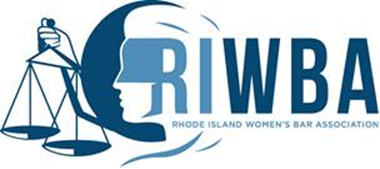RIWBA Strategic Plan: 2023-2026
Goal Area I - Sharpen Focus
1. Clarify Vision and Mission: Refine the Association’s vision and mission statements to
explicitly address the needs and goals of women lawyers, while promoting diversity,
equity, and inclusion within the legal profession.
2. Set Specific Goals: Define measurable goals that align with the mission, focusing on
advancing the rights, representation, and professional development of women lawyers
from diverse backgrounds.
3. Conduct a DEI Analysis: Assess the Association’s strengths, weaknesses,
opportunities, and threats in relation to diversity, equity, and inclusion. Address areas for
improvement, embrace opportunities, and mitigate challenges.
4. Define Key Priorities: Identify priority areas for action, such as advocacy for equal
opportunities, equitable opportunities, creating inclusive networking platforms, providing
mentorship programs, offering educational resources, and promoting leadership
development for women lawyers.
5. Develop Action Plans: Create detailed action plans with timelines, responsible
parties, and performance indicators for each strategic goal. Break down initiatives into
actionable steps to track progress and ensure accountability.
6. Monitor and Evaluate Progress: Regularly monitor and evaluate plan implementation,
measuring progress using metrics and assessing the impact. Make adjustments as
needed.
7. Reassess: Engage in redevelopment of a strategic plan every 3-5 years
Goal Area II - Engage Membership
1. Member Surveys and Feedback: Engage membership by regularly conducting
surveys and seeking feedback. Ask members about their experiences, challenges, and
suggestions related to diversity, equity, and inclusion within the group, and within their
respective firms. Seek guidance and feedback on how the RIWBA could be a resource
to them. Use this feedback to inform decision-making and prioritize initiatives that
address their needs.
2. Diversity and Inclusion Committees: Establish dedicated committees or task forces
within the women's lawyer group that focus on DEI efforts. Invite members to join these
committees and actively participate in shaping and implementing initiatives. Ensure
diverse representation within these committees to bring a range of perspectives to the
table.
3. Educational Programs and Workshops: Organize educational programs and
workshops on topics related to DEI, such as implicit bias, allyship, intersectionality, and
inclusive leadership, and also on workshops members feel they need. This can be
informed through membership feedback forms.
4. Networking and Mentorship Programs: Establish networking events and mentorship
programs that intentionally facilitate connections between women lawyers from diverse
backgrounds. Establishing some sort of pro-bono/service component and encouraging
participation. Encourage members to actively participate in these programs to foster
meaningful relationships, provide support, and promote career advancement
Opportunities.
5. Recognition and Visibility: Create platforms to recognize and celebrate the
achievements and contributions of women lawyers and also women lawyers from
underrepresented communities. Highlight success stories, share member spotlights,
and showcase diverse voices and perspectives through newsletters, social media, and
events.
Goal Area III - Enhance Organization
1. Engage Stakeholders: Involve members, leaders, and external partners in the
execution of meeting strategic goals, ensuring diverse perspectives and inclusivity.
Seek input and collaboration to create a plan that meets the needs of all women
lawyers.
2. Allocate Resources: Determine and allocate resources, including finances, group
members, and technology, to support the strategic plan’s implementation, prioritizing
initiatives that promote access, diversity, equity, and inclusion.
3. Communicate and Engage: Develop a robust communication plan to share updates,
successes, and challenges related to the strategic plan's DEI efforts. Engage members,
stakeholders, and diverse communities, seeking their feedback and involvement.
4. Review and Update: Periodically review the strategic plan, incorporating feedback
and adapting to evolving needs. Ensure ongoing alignment with DEI principles and best
practices.
